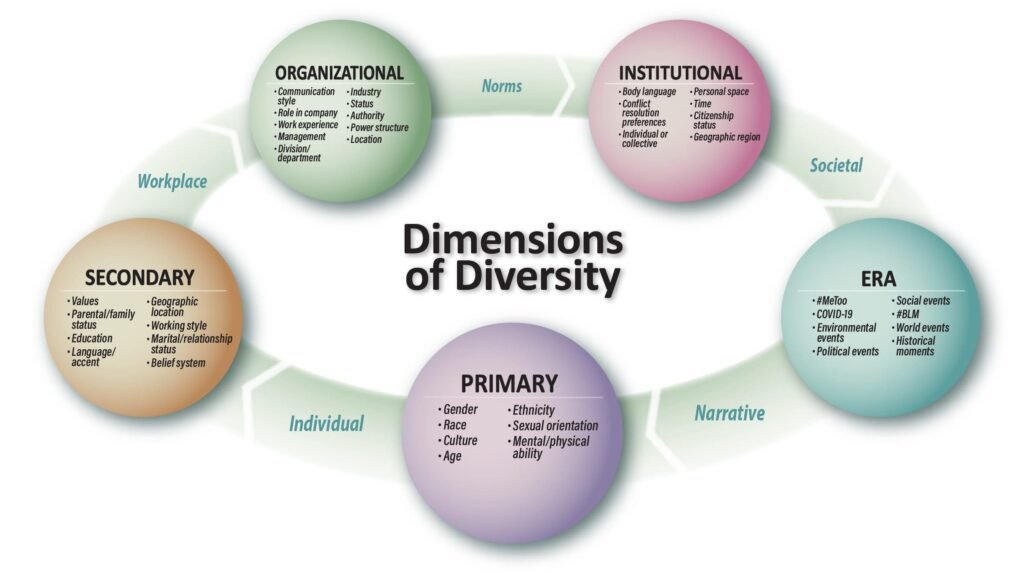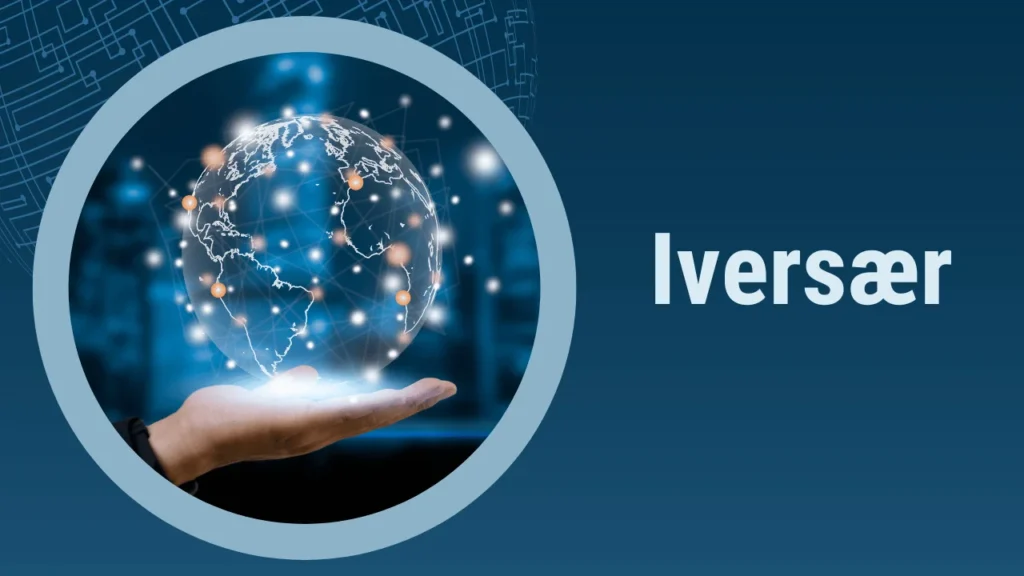Introduction
In the tapestry of human existence, diversity is the vibrant thread that weaves together our shared experiences and individual identities. “Iversær” emerges as a beacon in this intricate landscape, symbolizing a comprehensive understanding of diversity that transcends physical differences, including the complex interplay of thoughts, beliefs, and perspectives. This article delves into the essence of Iversær, exploring how it navigates the cosmic constellations of diversity and its profound impact on society.
What is Iversær
“Iversær” is not just a term; it is a philosophy that embraces the multifaceted dimensions of human identity and experience. It recognizes that diversity goes beyond race, gender, and ethnicity, encompassing a broader spectrum that includes cognitive diversity, varying beliefs, and unique perspectives. This holistic approach to diversity is essential in today’s interconnected world, where understanding and appreciating our differences can lead to greater innovation, creativity, and social cohesion.
The Dimensions of Diversity

To fully grasp the concept of Iversær, it’s important to understand the various dimensions of diversity it encompasses:
- Cultural Diversity: This includes the different cultural backgrounds, traditions, and practices people bring to the table. Cultural diversity enriches our society by introducing new ways of thinking and living.
- Cognitive Diversity: This dimension focuses on how people think, learn, and process information. It highlights the importance of diverse cognitive styles and problem-solving approaches in fostering innovation.
- Belief Systems: Iversær acknowledges the diversity of beliefs and values that shape our worldviews. Respecting and understanding these differences is crucial for peaceful coexistence and collaboration.
- Perspective Diversity: Everyone has a unique perspective shaped by their experiences, knowledge, and context. Embracing these varied perspectives can lead to more comprehensive and effective solutions to complex problems.
Case Study: A Global Tech Company
To illustrate the practical application and benefits of Iversær, let’s examine a case study of a global tech company that implemented this philosophy.
Background
The company, which we’ll call TechGlobal, operates in over 50 countries and employs a diverse workforce of over 100,000 people. Recognizing the competitive advantage diversity brings, TechGlobal adopted the Iversær approach to enhance its organizational culture and performance.
Implementation
- Diverse Hiring Practices: TechGlobal revamped its hiring practices to attract a more diverse pool of candidates. This included partnering with organizations that promote underrepresented groups in tech, ensuring job postings were inclusive, and implementing blind recruitment processes to minimize unconscious bias.
- Inclusive Policies and Training: The company introduced comprehensive diversity training programs for all employees, focusing on cultural competence, unconscious bias, and inclusive leadership. Policies were updated to support work-life balance, accommodate different cultural practices, and ensure equal opportunities for career advancement.
- Employee Resource Groups (ERGs): TechGlobal established various ERGs that provided a platform for employees to connect, share experiences, and advocate for their communities. These groups played a crucial role in fostering a sense of belonging and providing insights into different aspects of diversity.
- Innovation Labs: To leverage cognitive diversity, TechGlobal set up innovation labs where cross-functional teams collaborated on projects. These labs brought together employees with different skill sets, backgrounds, and perspectives, fostering a culture of creativity and out-of-the-box thinking.
Outcomes
The implementation of Iversær had a significant impact on TechGlobal:
- Increased Innovation: The diverse teams in the innovation labs developed several breakthrough products that contributed to the company’s growth. The varied perspectives and cognitive styles led to more creative solutions and enhanced problem-solving capabilities.
- Improved Employee Engagement: The inclusive policies and ERGs created a more supportive work environment, increasing employee satisfaction and retention rates. Employees felt valued and appreciated for their unique contributions, which boosted morale and productivity.
- Enhanced Reputation: TechGlobal’s commitment to diversity and inclusion strengthened its reputation as an employer of choice. This attracted top talent worldwide and improved customer loyalty, as clients appreciated the company’s dedication to social responsibility.
- Better Decision-Making: TechGlobal made more informed and effective decisions by incorporating diverse perspectives into decision-making processes. This resulted in better business outcomes and a more agile response to market changes.
The Broader Impact of Iversær
The benefits of adopting the Iversær philosophy extend beyond individual organizations. Here are some ways in which it can positively impact society as a whole:
- Social Cohesion: Embracing diversity fosters mutual respect and understanding among different groups, promoting social harmony. It helps break down stereotypes and prejudices, paving the way for more inclusive communities.
- Economic Growth: Diverse workforces drive innovation and productivity, contributing to economic growth. Companies that value diversity are better equipped to understand and cater to a global market, enhancing their competitiveness.
- Educational Enrichment: Iversær can lead to richer learning experiences in educational settings. Students exposed to diverse perspectives are likelier to develop critical thinking skills, empathy, and a broader worldview.
- Global Collaboration: In an increasingly interconnected world, collaboration across cultural and cognitive boundaries is essential. Iversær promotes global collaboration by emphasizing the value of diverse perspectives and experiences.
Challenges and Considerations
While the benefits of Iversær are clear, there are challenges to its implementation:
- Resistance to Change: Organizational and societal inertia can hinder the adoption of new diversity practices. Overcoming resistance requires strong leadership and a commitment to continuous education and dialogue.
- Measurement and Accountability: Tracking the impact of diversity initiatives can be challenging. Organizations need to establish clear metrics and accountability mechanisms to ensure progress.
- Avoiding Tokenism: It’s important to ensure that diversity efforts are genuine and not merely symbolic. This involves creating a culture where all voices are heard and valued, and diversity is integrated into every aspect of the organization.
Conclusion
Iversær represents a forward-thinking approach to diversity that acknowledges the complexity and richness of human identity and experience. By navigating the cosmic constellations of diversity, we can unlock the full potential of individuals and organizations, driving innovation, fostering social cohesion, and contributing to a more inclusive and equitable world. The case of TechGlobal demonstrates that with intentional effort and commitment, the principles of Iversær can lead to transformative outcomes. As we continue to explore and embrace this philosophy, we pave the way for a brighter, more diverse future.
FAQs
1. What is diversity?
Diversity refers to the presence of differences within a given setting. This includes variations in race, ethnicity, gender, age, sexual orientation, physical abilities, and more, as well as differences in perspectives, backgrounds, and experiences.
2. Why is diversity important in society?
Diversity is crucial because it enriches our communities and enhances social cohesion. It brings a variety of perspectives, promotes innovation, and helps us better understand and respect each other, leading to a more inclusive and harmonious society.
3. What is the value of diversity?
The value of diversity lies in its ability to foster creativity and innovation by bringing together different viewpoints and ideas. It leads to better problem-solving, improved decision-making, and a more dynamic and adaptive environment in the workplace, schools, or broader society.
4. Why is respecting diversity so important in today’s society?
Respecting diversity is essential because it ensures that all individuals feel valued and included, regardless of their differences. It promotes equality, reduces discrimination, and helps create a more just and equitable society. Understanding and respecting diversity is key to successful collaboration and peaceful coexistence in today’s globalized world.

